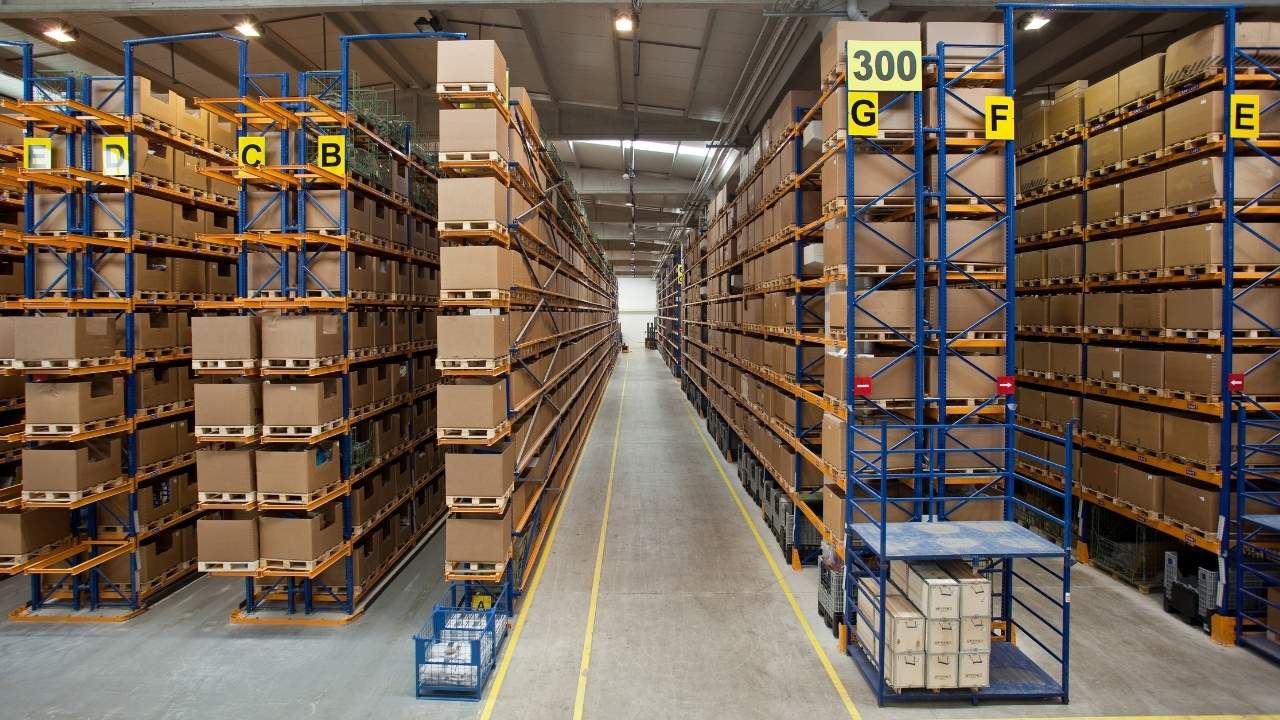How Can Intelligent Inventory Accounting Be the Key to Revolutionizing Your Supply Chain?
Impact of Inventory Accounting on Supply Chain Success
Inventory accounting plays a pivotal role in enabling supply chain success. Proper valuation and tracking of inventory at every stage allows companies to streamline operations, enhance decision-making, and optimize resource allocation. Organizations can boost efficiency, cut costs, and drive profitability across the end-to-end supply chain by leveraging the right inventory accounting techniques and the latest technologies.
How Inventory Accounting Contributes to Supply Chain Efficiency
Inventory accounting provides real-time visibility into stock levels and movements across the entire supply chain. This enhances coordination between partners, simplifies planning, and allows quicker response to changes in demand or supply.
Streamlining Operations
Accurate inventory counts ensure procurement and production plans are based on actual needs. This prevents overstock or stockouts, eliminating waste in supply chain processes. Inventory accounting enables process standardization using consistent SKU coding and valuation methods across warehouses, suppliers, etc. This leads to streamlined material and information flows.
Enhancing Decision-Making
By tracking inventory values and ownership changes, accounting data aids planning around transportation, warehousing, and product flows. Historical data around inventory performance and turns also supports data-driven decisions to optimize supply chain investments and processes on an ongoing basis.
Improving Resource Allocation
Inventory accounting provides visibility into working capital tied up across the supply chain. This allows organizations to identify opportunities to minimize non-value-adding inventory buildups and optimize inventory policies. The released working capital can then be reallocated to enhance production capacities, new product development, and higher ROI initiatives.
Key Inventory Accounting Methods Used in Supply Chain Management
Some commonly used inventory valuation methods include:
-
First-In-First-Out (FIFO)
Values inventory at the cost of the oldest stock purchased first. Helps limit the effects of inflation on inventory value.
-
Last-In, First Out (LIFO)
Values inventory at the cost of latest units purchased. Better matches current costs to revenues for reporting.
-
Weighted Average Cost (WAC)
Calculates average cost per unit for all units in inventory. Smoothens fluctuations in profit margins quarter to quarter.
Specific Identification
Tracks cost per unit for individual products tracked with a unique identifier. Supports precise tracking of high-value inventory.
The choice of technique depends on the business’ accounting policies, tax considerations, and inventory characteristics. The method must provide the right level of granularity while being practical to implement across the supply chain.
Real-Time Inventory Tracking and Its Impact on Supply Chain Operations
Access to real-time data on inventory changes across the supply chain allows for quicker identification and resolution of potential issues. This brings several key benefits:
-
Benefits of Real-Time Data
Real-time inventory data enables the detection of anomalies as transactions occur. This allows immediate investigation and mitigation before problems escalate or accumulate across the supply chain.
-
Integration with Supply Chain Systems
Real-time inventory tracking integrated across procurement, warehouse management, production planning and sales order processing systems enhances end-to-end supply chain visibility for smarter decisions.
Use Cases
Leading footwear players use RFID tracking to monitor inventory at major retail partners. This data is synced with demand signals to dynamically route inventory to locations with the greatest need.
Relationship Between Inventory Valuation and Supply Chain Success
Inventory accounting also impacts key supply chain success parameters:
-
Impact on Financial Statements
Inventory valuation using techniques like LIFO and average cost flow impacts the value of inventory assets on the balance sheet. It also influences the cost of goods sold and net income values reflecting business performance.
-
Influence on Pricing and Profitability
Accurately tracking inventory costs enables businesses to determine optimal pricing levels. Higher profit margins can be achieved through effective inventory cost control measures across the supply chain.
-
Strategic Inventory Valuation
Businesses often strategically value inventory to record losses in periods with higher income and gains in low-income periods. While remaining compliant with regulations, this balances financial performance across fiscal quarters and years.
Reducing Supply Chain Costs Through Inventory Accounting
By providing granular visibility into cost drivers across the supply chain, inventory accounting enables targeted cost reduction opportunities:
-
Identifying Cost-Saving Opportunities
Analytics can identify if higher-than-expected labor, storage, or transportation costs at certain facilities, product lines, or partners are contributing to high working capital costs. Addressing these through process improvements, vendor negotiations, etc. leads to direct cost reduction.
-
Minimizing Excess Inventory
Tracking inventory days on hand, turnover ratios, and other metrics allows businesses to smooth flows and establish optimal buffer stock levels across the supply chain to minimize working capital locked up in non-value-adding excess stock.
-
Enhancing Inventory Turnover
Locations or products with slower inventory turnover represent waste. Inventory accounting facilitates fact-based evaluation to identify root causes – such as overproduction, variability in supply flows, etc. – and guide corrective actions.
Technological Innovations in Inventory Management
Technology is transforming inventory planning and control across modern supply chains:
-
Transformation Through Machine Learning
Machine learning algorithms can prescribe optimized inventory ordering quantities, buffer stock levels, and lead time parameters tailored by product, geography, and channel to balance service levels and inventory carrying costs. ML also significantly enhances the accuracy of perpetual inventory tracking.
-
Internet of Things (IoT) for Real-Time Tracking
IoT sensors enabled with RFID, barcode and other identification technologies support real-time monitoring of inventory changes across facilities, transit, and retail locations to provide end-to-end visibility for rapid response.
-
Cloud-Based Systems
Cloud platforms enhance collaboration across the supply chain while also offering scalable, lower-cost systems for inventory tracking and planning using the latest technologies like ML, and advanced analytics.
Strategies for Effective Inventory Management
Some leading practices include:
-
Vendor-Managed Inventory (VMI)
Streamline flows by having key suppliers manage inventory replenishment. Define key metrics for performance measurement. Leverage system integration for visibility.
-
Safety Stock Optimization
Use data-driven ‘what-if’ modeling to calculate safety stock levels by location/product to manage risk. Simulate variability impact and tune periodically.
-
Implementing Lean Inventory Practices
Map processes end-to-end to identify and eliminate waste through Kaizen problem-solving. Optimize inventory buffers by stabilizing flows using Kanban systems.
Impact of Inventory Management on Business Performance
Efficient inventory management practices result in tangible business benefits:
-
Improving Customer Satisfaction
Accurate demand forecasts ensure product availability and enable reliable order fulfillment, reducing lead times and driving higher customer satisfaction.
-
Preventing Stockouts
Optimized safety stocks based on variability metrics help avoid stockouts. Backup sourcing strategies further mitigate risk of shortages to prevent revenue and reputational impact.
-
Managing Carrying Costs
Reduced inventory accumulation by smoothing flows & establishing scientific reorder points minimizes the cost of storage, obsolescence, damage, and insurance directly benefiting the bottom line.
Elevate Inventory Accounting with Versa Cloud ERP
As highlighted above, a robust inventory accounting and management system is indispensable for synchronized, cost-optimal, and agile supply chain operations. The future lies in moving from periodic manual processes to real-time integrated intelligent systems for end-to-end inventory optimization.
Versa Cloud ERP is designed to be the perfect solution for businesses looking to unlock the full potential of their inventory and supply chain. With its advanced features for inventory valuation, real-time tracking, sales forecasting, and seamless integration across procurement, warehousing, and logistics, Versa empowers organizations to boost efficiency, cut costs, and drive profitability across the entire supply chain.
Versa’s Integration capability with power BI helps businesses make data-driven decisions to optimize inventory policies, minimize excess stock, and enhance inventory turnover. Its cloud-based platform also facilitates end-to-end visibility and collaboration with suppliers, 3PLs, and customers. Whether you’re a manufacturer, distributor, or retailer, Versa Cloud ERP can transform your inventory management and unlock substantial value for your business.
Experience the benefits of Versa Cloud ERP for yourself. Schedule a free demo today and see how Versa’s innovative ERP solution can revolutionize your supply chain operations.






